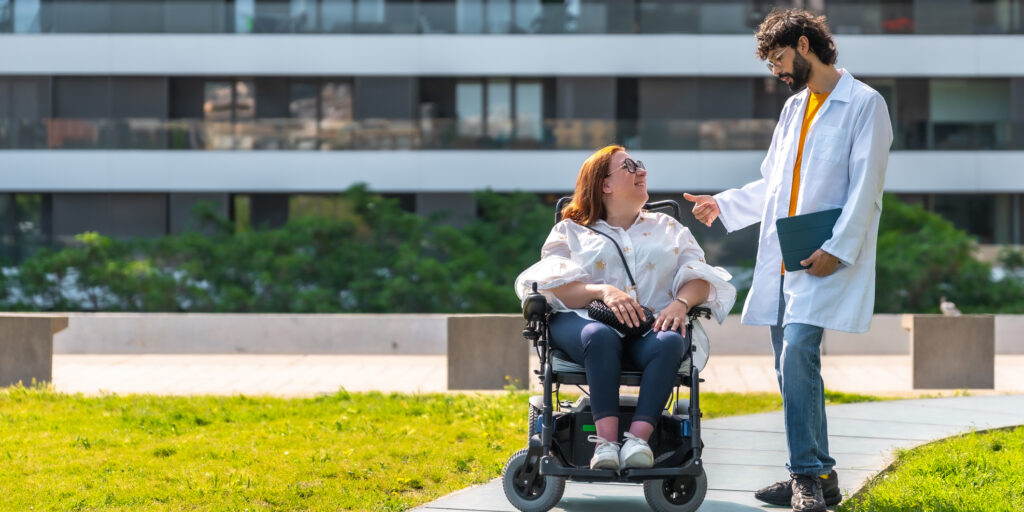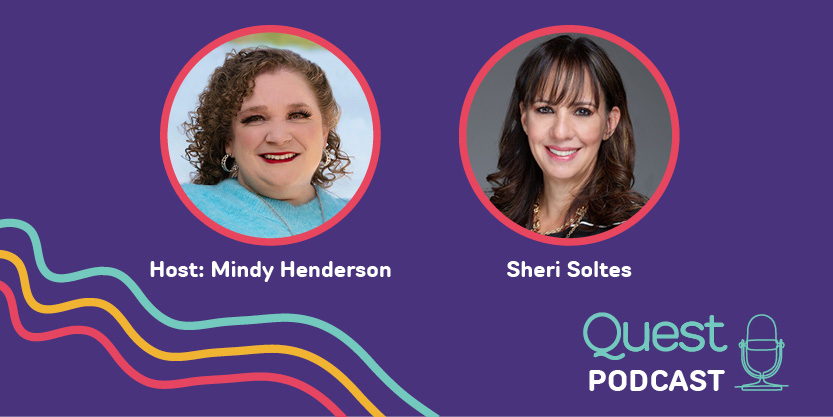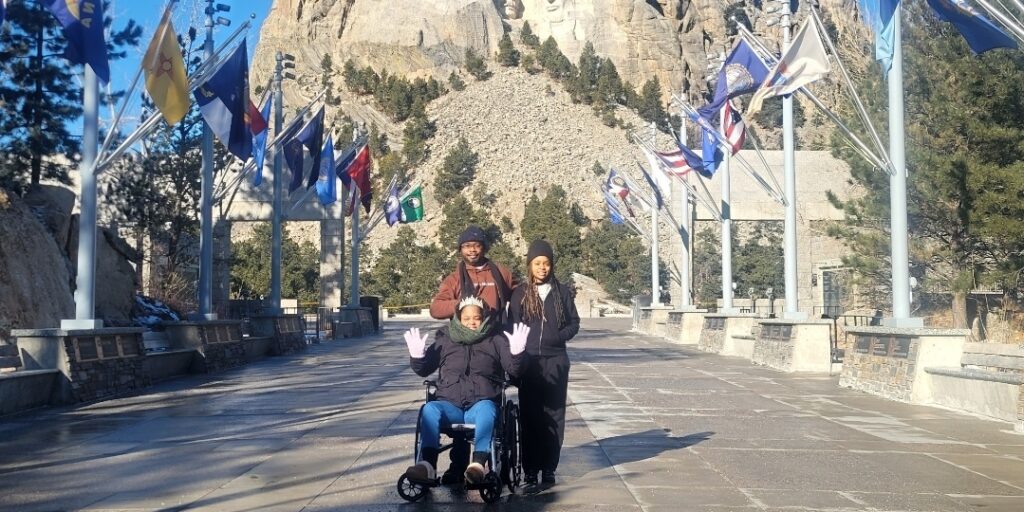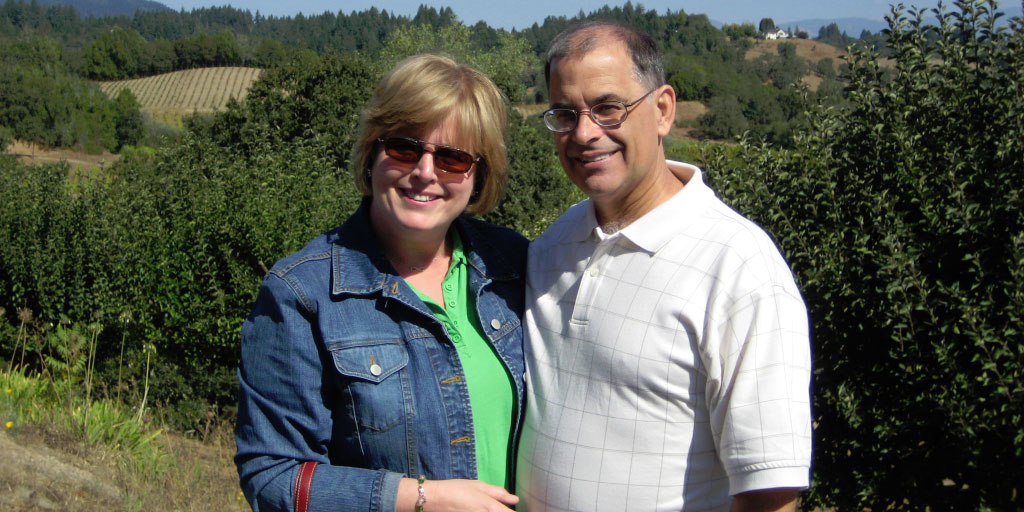
Hacking COVID: Voices from the Community, Part 2
By MDA Staff | Thursday, June 4, 2020
In April, MDA fielded a survey to ask its community how COVID-19 was impacting their lives. We heard your responses — anxiety, questions, hope — and wanted to know more. In this six-part blog series, Hacking COVID, people from MDA’s community, all living with neuromuscular diseases, shared how they’ve altered their day-to-day lives, how they’ve “hacked” situations like getting groceries and receiving assistance, how they’ve maintained contact and safety in an uncertain time.
MDA encourages all families to follow the guidelines put forth by the U.S. Centers for Disease Control and Prevention. Access our latest news and resources on our COVID-19 resource page.
Here’s what some have been doing.
Diane Granda, 66, resides in Arnold, Mo., with her husband Bob, 67, who lives with amyotrophic lateral sclerosis (ALS).
How has the threat of COVID-19 changed your day-to-day routine?
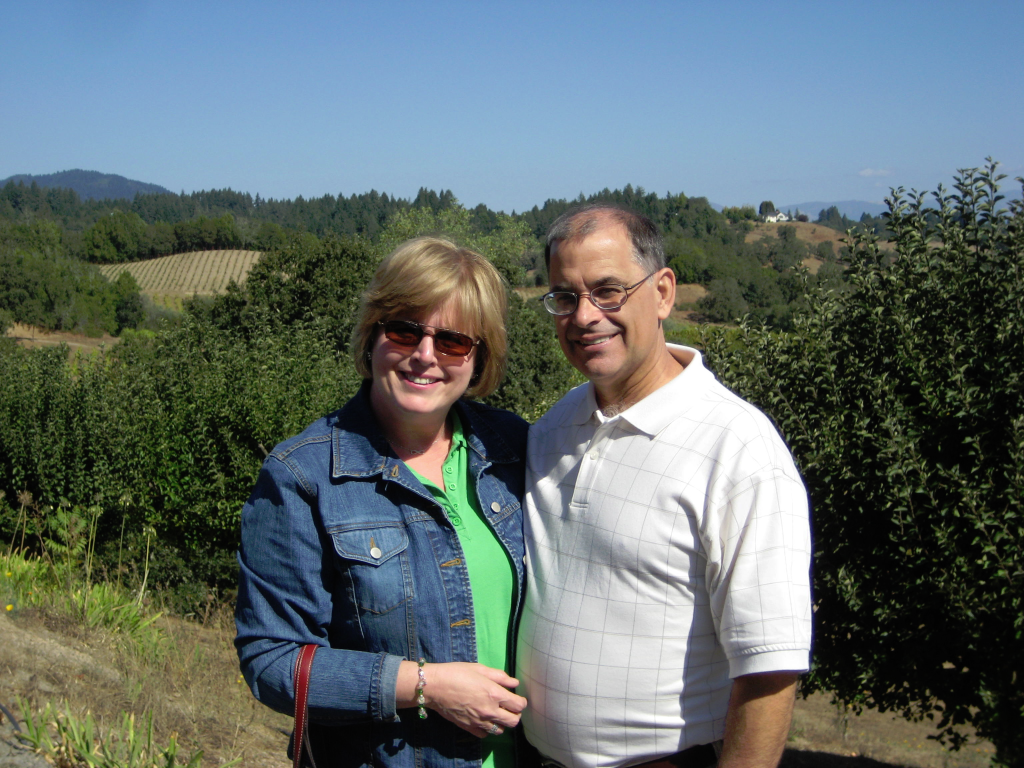
My husband, Bob, has ALS, therefore because of the COVID-19 rules and restrictions in place, neither one of us has ventured out in a long time. We have been spending our time going through closets, drawers, and shelves. We decided to do this at our leisure and with much thought. I have gone though many of our photos and have sorted those, too. Bob used to take tons of photos back in the day, so we have many in hand. He loved going through these. [It] brought back a ton of great memories for both of us.
How have you adapted to those changes? What tricks have you discovered to make things work?
For us, adapting to the COVID-19 rules and regulations has been easy in a lot of ways. Because of the flu going around, we had been limiting our outings since right after Christmas. What has changed is that now even I cannot go out for groceries, clothes, and other items we may need. I have gone to online ordering [through] Amazon, Walmart, and Instacart for groceries.
When packages or groceries arrive, they are taken to a table in our garage. I have gloves, wipes, and masks that I can put on. Everything gets sanitized before it gets brought into the house. Where groceries are concerned, if it does not require refrigeration, it can be left in the garage for a few days (this is all in accordance with the CDC rules). I have my trash and recycling cans nearby. This is an example of how I can cut down on bringing excess outer packaging into the home: If I can open a cereal box and pull out the bag, I then dispose of the box in the recycling can and the bag can be brought into the home.
I have been extra careful with the car. Although I have not gone to a store in months, I still have wipes, gloves, and masks in my car.
What has been the hardest change?
The hardest change is not seeing family and grandchildren in person. People had been stopping by to visit, or we would have lunch or dinner. Since the regulations, we have had to change this. We have spent many hours on FaceTime with grandchildren. They take us outside to watch them ride their bikes (we also have done this from inside our van for a drive-by visit). We have watched them swim and have played games with them all via our phones or iPads. Since the new TV show “LEGO Masters” was on, one of our most recent LEGO builds [was] designing a LEGO figure for each family member.
We have [cooked dinner on Zoom with family members, and we all] eat, drink, and chat. The LEGO mini figures were a huge surprise to everyone. And we have been thinking, maybe we need to all cook Italian, American, Chinese, or Mexican — something that would connect us all a little more.
At one of our last small Zoom sessions we even played an old favorite, Trivial Pursuit!
Another fun activity that Bob and I did was to write each grandchild an old-fashioned letter. The grandchildren love “getting their own mail.”
How have you been coping?
We have been coping as [best] we can. Just trying to be grateful for the extra alone time we have. Also, going through our treasures, we have found we have had such a blessed life and are extremely grateful.
Friends have taken to staying in contact us through mail, email, texts, and phone calls. And our children check in all the time. Probably more now that we cannot see them in person.
What new routines might you keep in place beyond the COVID era?
I may keep my system in my garage, even when I can venture out again. I feel like I am conscientiously recycling more by opening boxes, etc. I am also lucky to have a home where I enter from my garage into a laundry room, so if for any reason I feel I need to change clothes, I can set that up also. I feel like it is a good system and hopefully will keep some germs and clutter out of the house.
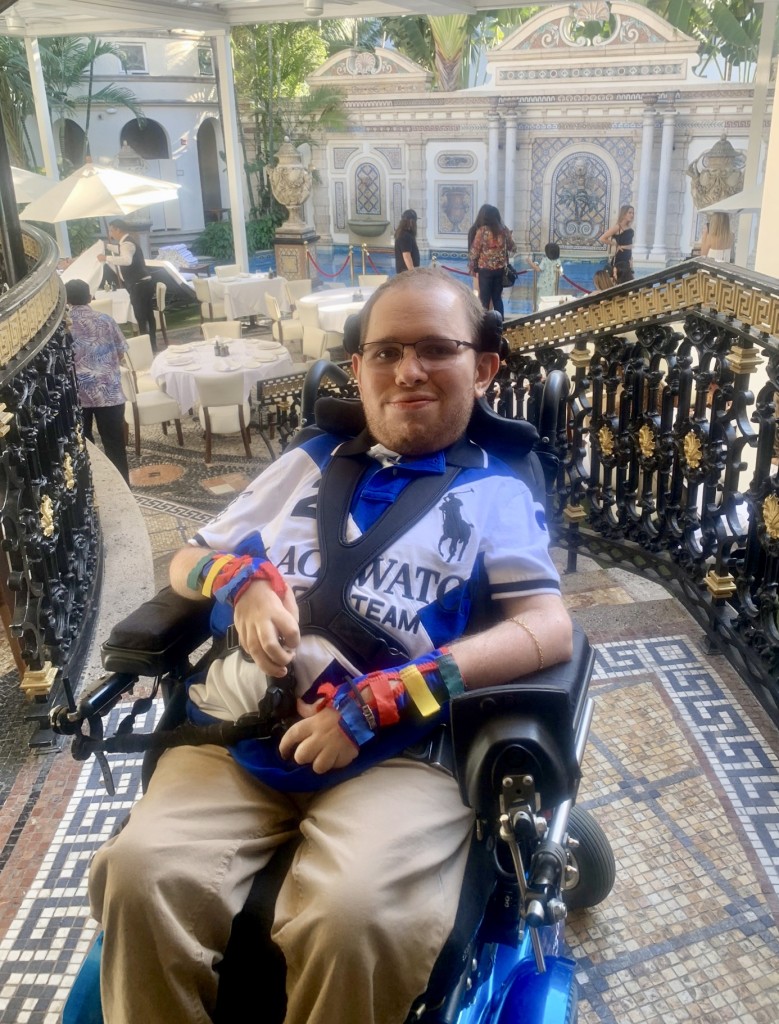
John Scurto, 22, lives with spinal muscular atrophy (SMA) type 2. John resides with his parents and his younger sister, Sabrina, in Boca Raton, Fla.
How has the threat of COVID-19 changed your day-to-day routine?
COVID-19 has drastically changed my day-to-day routine since the middle of March. I am a very socially active person and enjoy going out, whether to restaurants, sporting events, or concerts. Above all, my favorite thing to do is spend time with family and friends. I have to take extra precautions to minimize the risks of getting infected with the novel coronavirus, mainly because my breathing is already compromised by SMA. I have eliminated almost all physical contact with anyone I do not live with. I also had to stop having my nurses come to the house, so I am relying more heavily on my parents to take care of me. I spend almost all my time at home. I do go for occasional car rides and will ride around in my wheelchair outside to get fresh air, but other than that, I spend my time where I feel most protected: at home.
How have you adapted to these changes? What tricks have you discovered to make things work?
Overall, I was able to easily adapt to this new routine because I rely so heavily on technology. Now, I am utilizing the technology I use every day, such as my iPad and my laptop, to maintain my social life virtually. I feel like I have been more social than ever during this time. I became an avid user of FaceTime and Zoom. I have organized frequent Zoom calls with my family so we can all support each other as a group. While we have to practice social distancing, it doesn’t mean that we can’t be social and maintain our relationships. I have been using this opportunity to keep in contact with those who I usually see often and also people I may not have heard from. Additionally, before the threat of COVID-19, I was doing an internship at my alma mater, Florida Atlantic University. Now, I do all of my work remotely and have been utilizing video calling to communicate with the people I work with in the office. I am very fortunate that I am still able to do my work and keep myself occupied while being home.
What has been the hardest change?
The hardest change has been not being able to physically see my family and friends. While I am so grateful for video calling, nothing substitutes being in the same room and breathing the same air. It has also been difficult not being able to go out and have a change of scenery. I really enjoy going out and being active, and right now, it is not safe for me to do so.
How have you been coping?
My main coping mechanism is to remind myself that this is temporary. Yes, it is a rough time right now, but it can be so much worse. I would much rather be able to stay in the comfort of my own home than potentially contract the virus and not survive. Because of my condition, staying safe at home is necessary for survival. For me, there is nothing, besides having to go get essential medical attention, that is worth the risk of getting the virus. I am in a very fortunate situation where I live at home with my parents, so I don’t have any reason to go out. Also, keeping in touch with my friends and family has helped me not feel so alone. I have committed to having a positive mindset and finding things to be grateful for despite everything going on. Every day, I challenge myself to find at least one reason to smile. These daily moments of smiling have been great reminders to stay positive.
What new routines might you keep in place beyond the COVID era?
Before COVID-19, I was always very cautious about my exposure to germs. The common cold can lead to major issues for me that turn into pneumonia. I have been hospitalized numerous times throughout my life, so I know what could potentially happen if I am not careful. I do my best to not put myself in areas where I am surrounded by lots of people and cannot move away if someone coughs or sneezes near me. Beyond the COVID-19 era, I will continue these practices and be even more mindful of situations I put myself in. I may choose to eat outside when going out to dinner, rather than being in a crowded restaurant. I will most definitely try to avoid being in elevators and other small, tight spaces with other people.
Socially, I will continue to maintain the relationships I have with my friends and family. This pandemic has taught me that the only thing we have is each other. Going forward, I will cherish every moment I’m able to spend with the people I care about. COVID-19 has taught me never to take anything, even the smallest of moments, for granted because you never know when it could be taken away.
Disclaimer: No content on this site should ever be used as a substitute for direct medical advice from your doctor or other qualified clinician.


